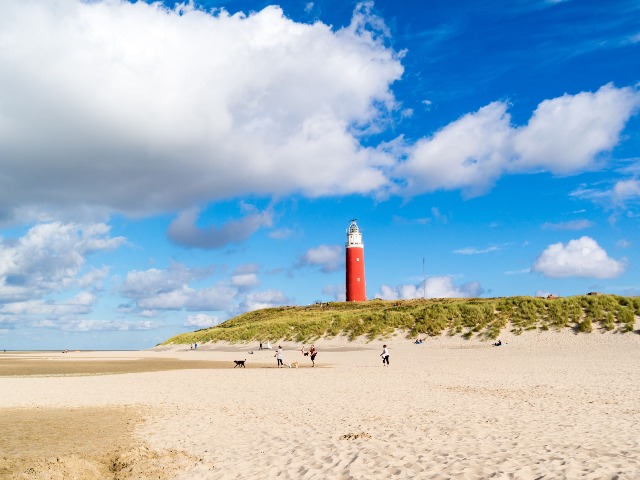Summer/Winter School Series: “Islands as Laboratories for Sustainability (ISLAs)”

Building on last year’s very successful summer school at the University of the Aegean (Lesvos island campus) and the online edition the year before that, the University of Groningen and the University of Las Palmas de Gran Canaria outline challenges that islands face and work together to ensure sustainable development.
This text is a translated, edited and extended version of an article first published in the Spanish newspaper El Periodico de Canarias on 16 February 2023. The text was translated from Spanish to English and edited by Sarita Mahtani-Williams. Photographs by Dr Richard Rijnks.

Last week, University of Groningen’s winter school “Islands as Laboratories: Environmental Management in the Islands” was hosted by the University of Las Palmas de Gran Canaria (ULPGC) in the Canary Islands. This winter school is an initiative of the Sustainable Landscapes research group of the University of Groningen (RUG) and the international Erasmus Mundus Research Master Islands and Sustainability programme, and was organised in collaboration with the University Institute for Research in Sustainable Aquaculture and Marine Ecosystems (ECO-AQUA) on Gran Canaria. Gran Canaria is located in the center of the Canarian archipelago (NE Atlantic Ocean). Due to its unique natural and cultural landscape, nearly half the island’s geographical space is part of the UNESCO Biosphere Reserve, comprising six rural communities linked to traditional activities.
The “Islands as Laboratories” winter school was opened by the vice-rector for Internationalisation, Mobility and International Projection of the University of Gran Canaria, Professor Jin Taira, who was joined by the vice-rector for Undergraduate, Postgraduate and New Degrees, Professor Luis Hernández Calvento, associated with the IOCAG institute, the director of the IU-ECOAQUA, Professor Ricardo Haroun. Professor Dimitris Ballas of the University of Groningen and Professor Rodrigo Riera, researcher at the ECOAQUA institute were the coordinators of the winter School.

Professor Rodrigo Riera from the ECOAQUA institute talked about the main disturbances that occur in the coastal environment, with special reference to islands with a high population density, such as Gran Canaria. Similarly, Professor Ballas of the RUG stressed the importance of organising this type of course in island territories and using various case studies on crucial issues for island sustainability. The vice-rector Luis Hernández-Calvento, researcher at the University Institute of Oceanography and Global Change (IOCAG), also showcased the importance of the geological context of the Canary Islands archipelago, as well as the geomorphological characteristics and the different degrees of alteration in the Canary Islands, with special reference to the occupation of the coastline.
During the Winter school, students worked in teams on aspects related to island sustainability, developing ideas that could potentially be implemented in practice on Gran Canaria. In this Winter school, there were students with very diverse backgrounds (including all ISLANDS students who are at ULPGC for their compulsory mobility period) and different nationalities(United Kingdom, France, Peru, Nigeria, and Brazil and Spain).

A diverse team of speakers and moderators were present at the winter school and discussed issues within sustainability on islands. These included Professor Godfrey Baldacchino, from the University of Malta, Professors Dimitris Ballas and Richard Rijnks, both from the University of Groningen, Professors Ricardo Haroun, Rodrigo Riera, Fernando Tuya, Lidia Robaina and researchers Drs Andrej Abramic, Sandra Navarro, Néstor Bosch, Víctor Cordero, Marcial Cosme and Yaiza Fernández-Palacios, researchers Fernando Tuya, Andrej Abramic, Sandra Navarro, Lidia Robaina, Néstor Bosch, Víctor Cordero, Marcial Cosme and Yaiza Fernández-Palacios, all from IU-ECOAQUA, as well as Professor Julieta Schallenberg, from the Renewable Energy Research Group (GRRES) of the ULPGC; and Professor Luis Herńandez-Calvento, researchers Dr Néstor Marrero and Dr Abel San Romualdo, from the Institute of Oceanography and Global Change of the ULPGC.
The new Erasmus Mundus Islands and Sustainability (ISLANDS) programme (building on the Islands and Sustainability track within the Research Master in Spatial Sciences of the the University of Groningen)
The Winter school 'Environmental Management in Islands: Challenges and Sustainability' is part of an ongoing partnership and collaboration between the University of Groningen, the University of Las Palmas de Gran Canaria (Spain), the University of the Aegean (Greece) and the University of Iceland. For more information see: islandsmaster.eu

Within the current globalised economic and social system, international collaboration is key to ensure sustainable development on islands, preventing face economic, social, political and cultural marginalisation. Such synergies should be measured in both research and education on ways to manage islands and increase the capacity of island communities. Understanding the problems and finding effective ways to develop the potential of small islands requires international academic cooperation that goes beyond the specificities of each island.
"There is clearly a demand for a high-quality Master's programme on sustainable development on islands that can enhance the much-needed training and expertise in this field. This is why these different university centres have joined forces to launch a high-level integrated island studies programme at Master's level," says IU-ECOAQUA Director Professor Ricardo Haroun.
In the words of Professor Haroun, islands are biodiversity hotspots where environmental problems are further accentuated. Key issues on islands such as Gran Canaria are to carry out effect conservation action to preserve the unique species that form island ecosystems, as well as managing the threats to these to which they are exposed, such as invasive species.

About the author
Student of the Research Master in Spatial Sciences: Islands and Sustainability (Erasmus Mundus)

